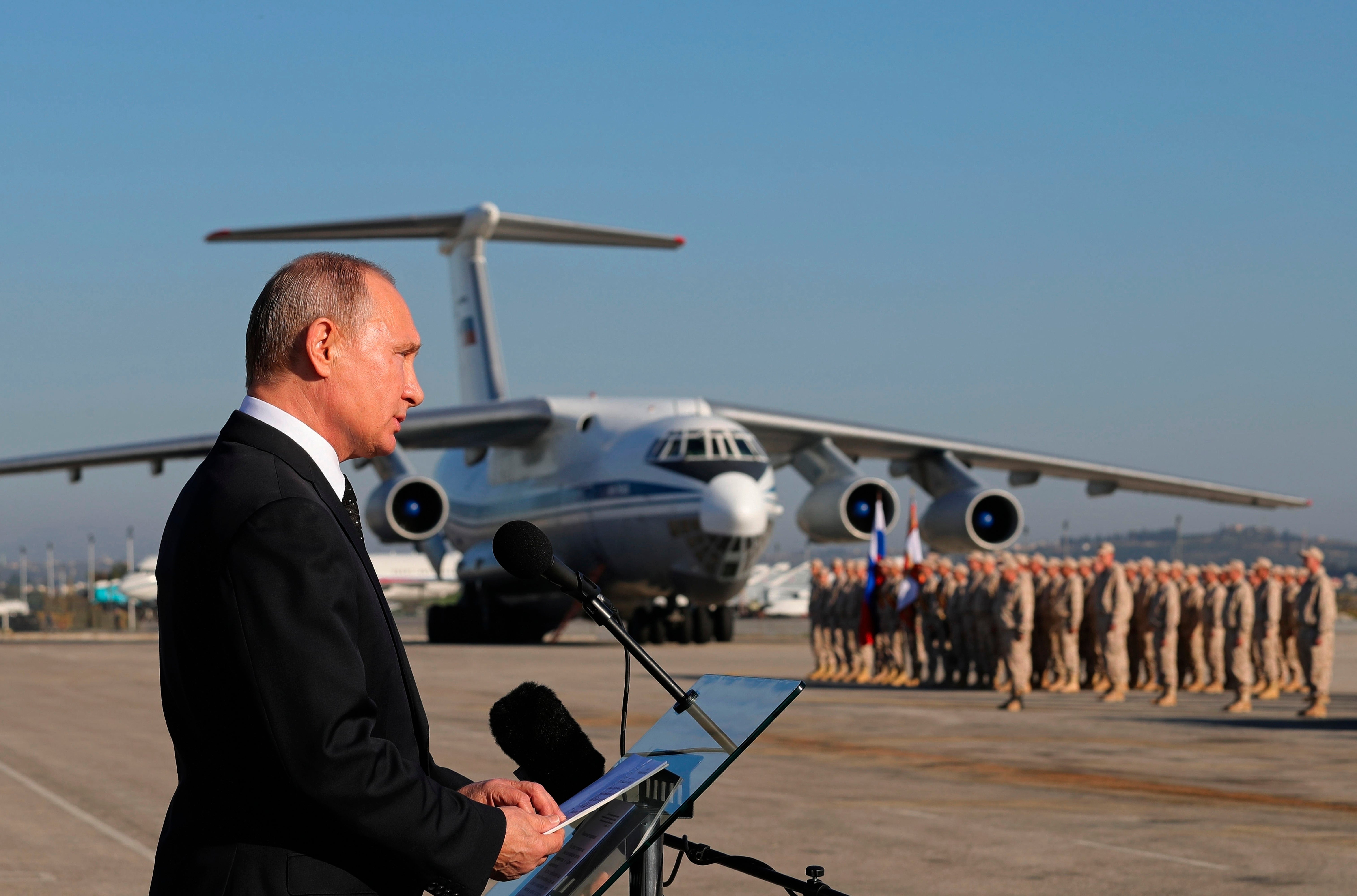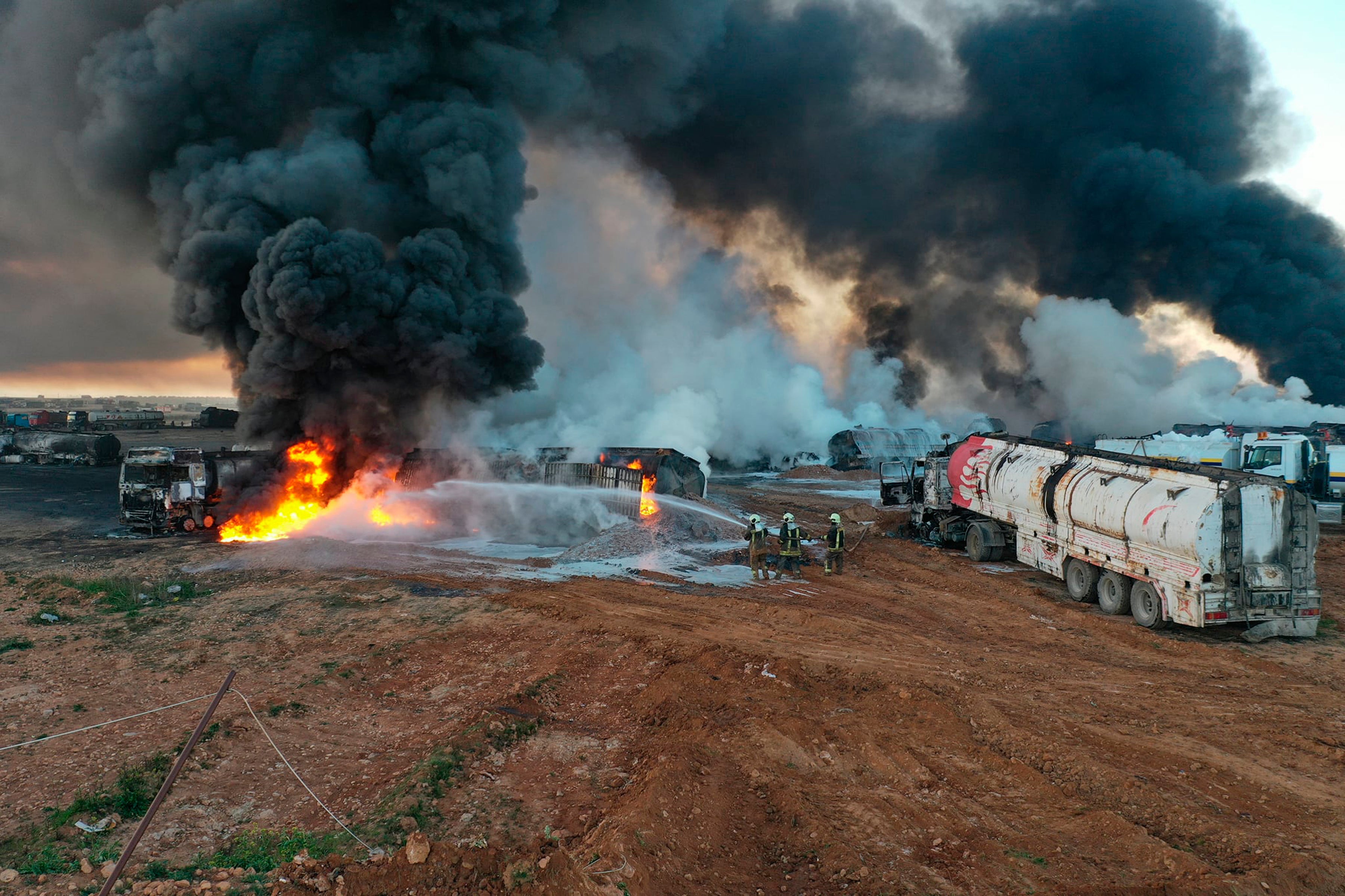Landmark report calls on Russia to acknowledge leading role in Syrian humanitarian catastrophe
A two-year inquiry by Russian NGOs has documented those responsible for the disaster in Syria, including pointing a finger at Moscow, reports Oliver Carroll


A new human rights report has called on Moscow to take more responsibility for the humanitarian fallout from the 10-year Syrian conflict.
The inquiry, authored by a group of Russian non-governmental organisations, documents widespread use of arbitrary detentions, torture, rape, and indiscriminate weapons and military tactics by a range of actors from the US-led coalition to the Syrian regime.
Drawing from 150 in-depth interviews conducted over two years, it describes the consequences of a “devastating decade” that has left over half a million dead, and 130,000 detained or disappeared.
But it is the role of Russia, whose 2015 military intervention on the side of the Syrian regime turned the conflict in autocrat Bashar al-Assad’s favour, that attracts particular attention.
The “overwhelming majority” of interview sources did not view Russia as a saviour, the report notes. Instead, Moscow was seen as an enabler of “war criminal” President Assad, and co-complicit with his regime forces in a number of “indiscriminate and targeted attacks”.
Read more:
The Russian-Syrian coalition stood accused of targeting civilian infrastructure, including hospitals “using coordinates provided by the UN to ensure the safety of civilian objects”.
Unable to visit Syria, the authors were unable to corroborate many of the reports of war crimes, including evidence of barrel bomb and chlorine attacks by Syrian forces. But consistency in witness testimony with other data, including videos and photos, led researchers to conclude the allegations had “a high degree of credibility”.
The report’s authors say they were motivated to complete the work by their countrymen’s ignorance about a war fought in their name. “The Russian public does not have sufficient knowledge to judge whom and what we are supporting,” they write.
Influenced by state media, which continues to dismisses evidence of Syrian war crimes as conspiracy, most Russians continue to view the conflict as a simple battle of good against radical Islamist terrorists.
The report rejects the official Russian narratives for the 2015 intervention. Moscow was driven less by humanitarianism, it says, as by a “desire for a short victorious war to enhance influence ... military presence, and to get access to Syria’s oil reserves”.
“When we introduce the variable of civilians dying every day ... we see much greater responsibility for Syria’s future resting... first and foremost, on Russia,” the authors argue.
Surprisingly, there is only passing mention of the role of Kremlin-associated mercenary organisations like Wagner, which have been implicated in bloody battles for oil fields in the region.

Videos that surfaced in 2017, for example, appear to show one Syrian national being tortured, beheaded, dismembered, and set on fire by what appear to be Wagner mercenaries. The man’s brother began an unlikely process to obtain justice in Russian courts last month.
Russia has denied targeting civilian and medical infrastructure, or involvement in war crimes purported to have been led by the Syrian regime.
But the authors said their “bridge-building” report was about recognising the opportunities that came with Moscow’s new influence with the Syrian regime.
“Influence entails responsibilities,” it says.
Join our commenting forum
Join thought-provoking conversations, follow other Independent readers and see their replies
Comments